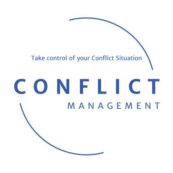We’ve all had moments when we’ve gotten caught up in an anger spiral. You know what I mean.
You get fixated on the issue, which is usually something someone else has done or something you want that they are stopping you from getting.
Your focus narrows down and you start to think that the only way that this can be resolved if the other person fixes it. After all, you’re an innocent victim in the situation.
Your behaviour may get more and more extreme but it’s justified. Right? How else are you going to show them that this is important to you?
Your emotions take over and you might start to shout, scream, cry or whatever to express the turmoil you feel inside.

Don’t try to deny it. I know you’ve done that at some time in your life. Perhaps you were a young child at the time and have since learned how to deal with life’s up’s and down’s without losing your cool.
Or perhaps you are one of the 10% of people estimated by the High Conflict Institute to have a cluster of behaviours that create a high conflict personality.
What is a High Conflict Personality?
High Conflict behaviour isn’t a specified personality disorder although people with certain types of personality disorders are more likely than the general population to have a high conflict personality as well.
The way you can guess that someone might fall into the High Conflict group is when they get upset they have:
- Unmanaged emotions instead of self-control
- Extreme behaviour, they do things without any apparent remorse that 90% of the popultion wouldn’t do
- Inflexible thinking, they appear to be incapable of thinking flexibly and coming up with options when they are in this high conflict state
- Blaming everyone but themselves in any given situation. They won’t or can’t take responsibility for their choices.
The thing is that they don’t behave in this way all the time. If they are not triggered or frustrated they behave in perfectly socially acceptable ways but when they get upset it can be long and persistent.
Because they believe others are at fault for everything that happens to them they are the people who go on legal cruisades fighting through multiple courts and with multiple different legal advisors. They sack their lawyers when they stop telling them what they want to hear and usually end up self-representing because they have spent all their money or they can no longer find lawyers to take them on.
